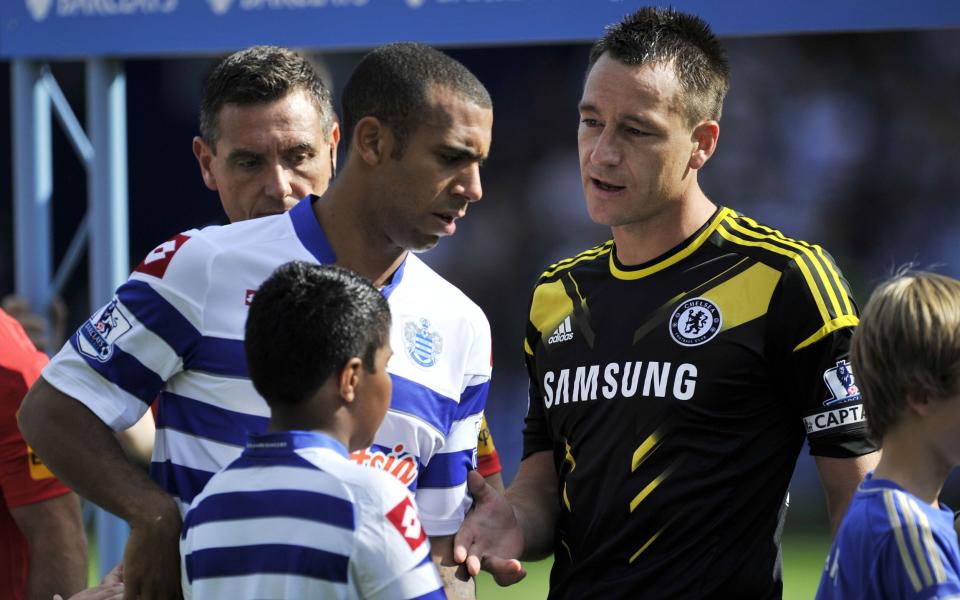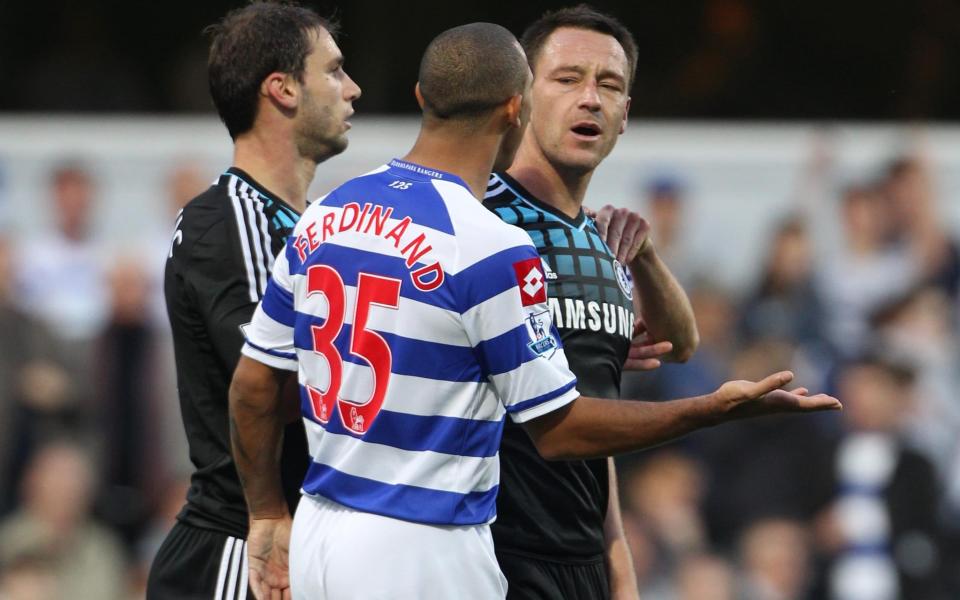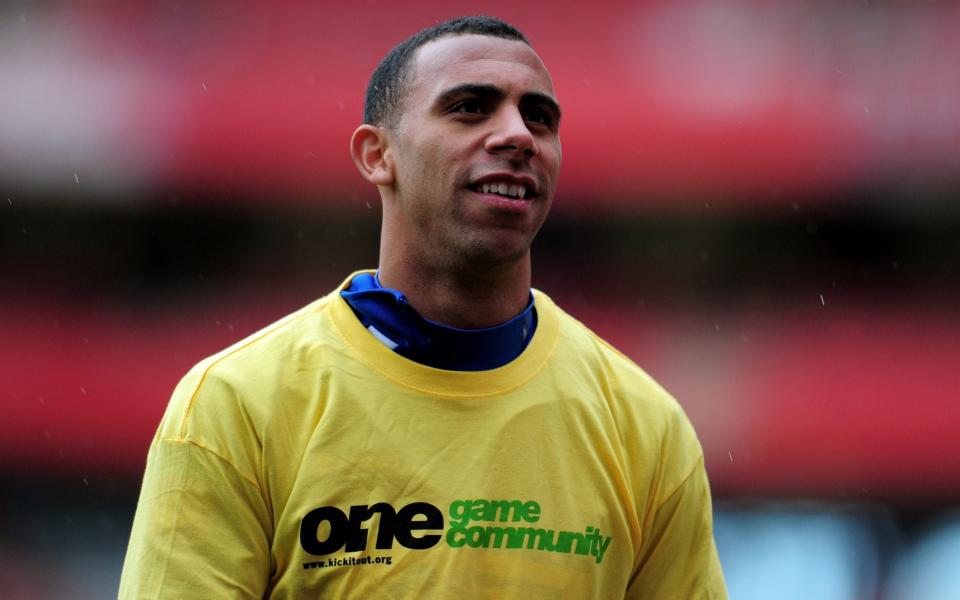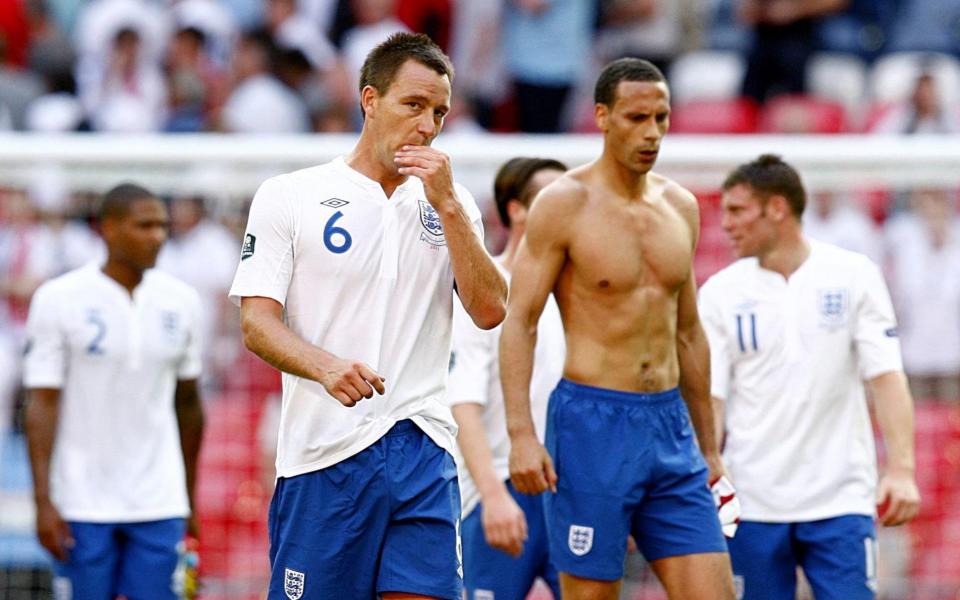Anton Ferdinand exclusive interview: 'I loved playing but hated what football stood for'

Anton Ferdinand is describing what it was like to be booed wherever he went in the aftermath of the extraordinary series of events over 2011 and 2012 that began with him and John Terry, and an allegation of racial abuse that would come to define so many careers in the game.
As a young defender with a promising career he had enjoyed the hostility of rival fans, Ferdinand explains as we chat over a Zoom call this week, but after the events of Oct 23, 2011 at Loftus Road the tenor changed. “Normally when you get booed it’s like, ‘Wicked, this is going to get me up for it even more’, I had times when I have thought, ‘Ok I am going to show you guys’. And I still had that in the games.” And then he pauses, and explains how life changed after that infamous game against Chelsea.
“It was more than when I was walking in from the coach to the stadium and hearing what people were saying around that time. There were all sorts of things. Anything to do with the incident. Whether it was racial abuse from fans, the jeers and the booing was always there. It was a constant noise that I would hear.
“When I was playing I was just in the game. It fires you up. There is something about when you are just walking into the stadium it hits you differently. You know? Your job hasn’t started yet. Once the job starts you’re in a different frame of mind. I was made to feel it was my fault. That is another part of the ripple effect that people don’t understand. They probably thought they were just trying to get me off my game. It harmed me and I didn’t know it at the time. I am a human being. I have feelings. I might give out the bravado but when it happens time and again it is going to make you question yourself. You ask, ‘Is it really my fault?’”
As for the abuse on social media, he says it was never-ending. “When you are in your house is when you relax but when I was in my house I was still seeing and reading the abuse I was getting. It never left me.”
Nine years on from the day that Terry was alleged to have called Ferdinand a “f------ black c---“ in that game between Queens Park Rangers and Chelsea, Ferdinand has at last broken his silence on the effect on him. Viewed through the lens of 2020 and the Black Lives Matter movement the dynamic around what happened over those 12 months and then in the years that followed feels different. It was a saga that brought down an England manager, saw Terry cleared in court of racially abusing Ferdinand before the Football Association eventually found him guilty on a lower burden of proof. In the tumult Ferdinand himself had been largely forgotten – until now.

Anton Ferdinand: football, racism and me, an extraordinary BBC1 documentary, might well be the year’s defining take on English football’s grapple with prejudice and pursuit of equality. It tells us what happened to Ferdinand in the months during and after Terry was stripped of the England captaincy by the FA, when Fabio Capello quit as manager in protest, and then Terry himself retired from the international game on the eve of the damning FA inquiry. The short answer is that Ferdinand received a lot of racial abuse and even this week, since the publicity around the documentary launched, that has begun anew.
On that day at Loftus Road, Ferdinand himself never heard the alleged slur from Terry and the complaint to the Metropolitan police came from a member of the public. Terry was charged with a racially aggravated public order offence and the case opened on July 9, 2012 at Westminster magistrates. Giving evidence Terry admitted that he had said the words but only as part of a question to Ferdinand. Terry claimed the then QPR defender had first accused him of saying them. The district judge described Terry’s explanation as “unlikely” but found the evidence did not reach the threshold required.
The independent commission appointed in September that year by the FA found that Terry’s evidence was “implausible, improbable and contrived”. It found him guilty, fined him and banned him for four games. Terry issued a statement in the aftermath apologising for his language. He has never apologised to Ferdinand.
Ferdinand’s career never recovered. At 26, he had played 258 games in the Premier League for West Ham, Sunderland and QPR. After the Chelsea game he played just nine more and was on loan in Turkey by January 2013. Now 35 he retired last year and mentors players at the management agency co-founded by his brother Rio, New Era Global Sports, but it has been a long and painful path to get there.
“I am ready to try to help positive change,” he says. “That is the driving force behind this documentary. I could have made it about me and John. But I was very clear to the BBC that if this was going to be ‘me versus John’ it wasn’t for me. As far as I am concerned the incident is bigger than me and him. That’s not just based on what is happening today in society. That is my view and has been for a little while now. I had to get over the anger and the emotion I was feeling towards it. Now I feel I am in a place when I can talk about creating positive change.”
There are occasions in the programme when emotion overwhelms Ferdinand, especially as he recalls his late mother Janice Lavender and the abuse she received in the aftermath, including attacks on her home. There was also the guilt at how his actions might have affected those he loved. That is a common anxiety for those subject to racial abuse he is told in the documentary by Dee Albert a, psychotherapist.
Ferdinand is clear that he is proud of a career that took him to Reading, Southend, and St Mirren after he returned from Turkey. “I know a lot of people would love to have the career I had. I don’t regret anything I did. Did it hurt that I had to move abroad? Yes it did but it’s part of my journey and I am happy I experienced another culture. I have never hated playing football. I love playing the game – I hated what football stood for. In terms of the lack of support that I had.”

Did his part in the downfall of an England captain affect the way clubs perceived him? “Only the clubs can really answer that,” he says. “When you are playing at the top level and then all of a sudden clubs don’t want you – you are going to have those thoughts. If you asked me at the time I would have said ‘Definitely’.
“I sit here an older person and a bit more understanding and I can say I respect the clubs’ decision. Was it right? I don’t think so because I still had so much to offer. It was their loss … but that hurt is now a positive because I can transform that into words that help the next generation understand football isn’t always what we think and I’m living proof.”
What of his brother Rio, who was left out of England’s Euro 2012 squad on the basis that Roy Hodgson felt he could not take both him and Terry? “I had a lot of things where I felt, is it my fault?” Anton says. “That’s how it made me feel. Everywhere I went into games I got booed. Everything that happened around the court case, the abuse on social media. It was no different with Rio’s international career.
“I heard people say that I was just doing this because Rio wants the [England] captaincy [from Terry]. That is so far from the truth. Rio says he wishes he spoke up at the time. But I didn’t want him to because it would’ve harmed him. That would have weighed heavily on my shoulders. I don’t feel that now but subconsciously you feel ‘Is it my fault that Rio isn’t playing for England anymore?’ I must say Rio never ever felt that it was and that is the most important thing.”
Neither Terry nor Ashley Cole who gave evidence in court on his Chelsea team-mate’s behalf appear in the documentary. We see Anton trying to make contact with Terry during the programme.
Terry’s representatives say he did “reach out at the time of the incident”. The Aston Villa coach says now he has “moved on with his life” and “doesn’t want to reopen a case that was decided in court”.
Is there any relationship with Cole, whose fallout with the Ferdinand family was monumental at the time? “No, there isn’t, but that is what happened,” Anton says. “The incident was bigger than what we think. I’m not stupid. I respect the fact he didn’t want to go to court. I didn’t want to but I had to. I respect that. That’s neither here nor there. It’s bigger than me, it’s bigger than Ashley, bigger than John. That’s the most important thing. To sit here and say, ‘Things have happened but if we can come together and make positive change, how good could that be?’”

“There are two sides of a story in terms of the way you feel you have been treated or not supported. Let’s put all these things together and show the powers in football how not to deal with an incident if it happens again. That message from me needs to be clear in anything that I do. I am not doing this for me. I didn’t go into this thinking it would be therapy for me. I learned that on the journey. I went in there with a clear mind of 'This is bigger than me'.”
Towards the end of the documentary he visits his former Sunderland team-mate Jordan Henderson now at Liverpool to ask him about the uncomfortable episode in 2011 when the team wore t-shirts in support of Luis Suarez. The Uruguayan had been found guilty of racially abusing Patrice Evra. Henderson considers the point thoughtfully and admits that the Liverpool players were preoccupied with Suarez and did not think enough about Evra. “We got it wrong from top to bottom and if people want to point me out I will take full responsibility too as a player,” he says. “People will say that’s a bit late but it’s better late than never.”
As a postscript it is profound and Ferdinand reflects on that later in our interview. “A prominent white player today who speaks about racism the same way I do or any other black player,” he says. “Liverpool captain and England vice-captain speaking about racism – that message in itself is more powerful than any incident.”
The “incident”: it feels an inadequate way to describe a moment that forced such change in Ferdinand’s life. I ask him how he manages to be so forgiving in his rationalisation of what has happened to him. Ferdinand is a born-again Christian but he mentions that only once during our chat. The word he returns to over and again is “empathy”.
“Five years ago I wouldn’t have been able to sit here and do this. I still had anger and things I had to deal with and now I’m at a point where I can show empathy. To forgive is the wrong word. Empathy isn’t me agreeing with what’s been said. It is understanding what has been said and showing we can move on to make things better. That is the sole message. Empathy to move on and make things better. It is not a case of ‘Anton forgiving’ but I am willing to show empathy so that we can create positive change.”